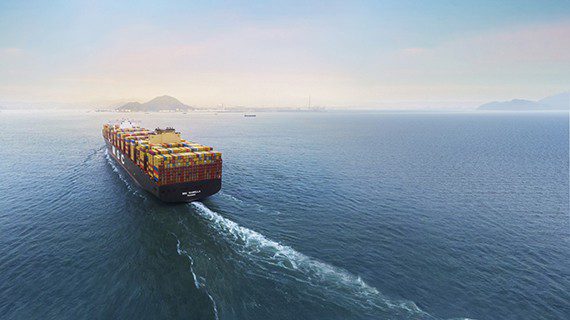MSC intends to make energy efficiency performance improvements
MSC has warned that the International Maritime Organization’s (IMO) new CarbonIntensity Indicator (CII) regulations, coming into force next year, could penalise vessels trading on short distances while absorbing 7-10% of the capacity of the global container fleet.
The CII efficiency assessment will be measured by the carbon emitted in relation to a vessel’s cargo carrying capacity per nautical mile.
It is thought that factors including overloading (increased fuel), increased length of port stay and fast steaming will cause vessels to have low CII ratings.
The carrier noted that with shipping lines taking regulatory compliance plus the needs of customers into consideration, CII could absorb 7-10% of global container fleet capacity.
A spokesman for MSC stated: “As many across academia and industry have said, the calculation methodology (/DWT) should be revised to avoid unintended consequences that would distort the performance of a ship that spends a lot of time in port.
“As things stand, the proposed methodology could lead to situations in which a vessel’s rating would worsen simply because it spends more time in port. We respectfully question whether this unintended consequence could be avoided by amending the methodology.”
The spokesman continued: “As others have said, CII should not effectively penalise vessels trading on shorter distances and while waiting alongside.
“It would be far better to have an operational indicator that would reward more productive ships, including based on cargo carried rather than on a theoretical value that may not correlate to transport work performed.”
The Geneva-based company noted that it will support and fully comply with the CII regulation through a range of measures.
It intends to make energy efficiency performance improvements to ensure that the fleet keeps pace with evolving regulatory standards, citing the lack of net zero CO2 emission fuels available at scale in the short-term.
The carrier added that it will harness the latest ship design and technologies to modernise its fleet, by retrofitting older vessels and incorporating new buildings that include the world’s largest and most energy-efficient container ships.
MSC’s spokesman pointed out: “On top of a range of design and technology efficiency measures, we have assessed that it will not be possible to achieve the required standards without a new programme of voyage optimisation that includes elements such as speed reductions and injecting additional ships into the network. Just-in-time port call optimisation will also play a role.”






